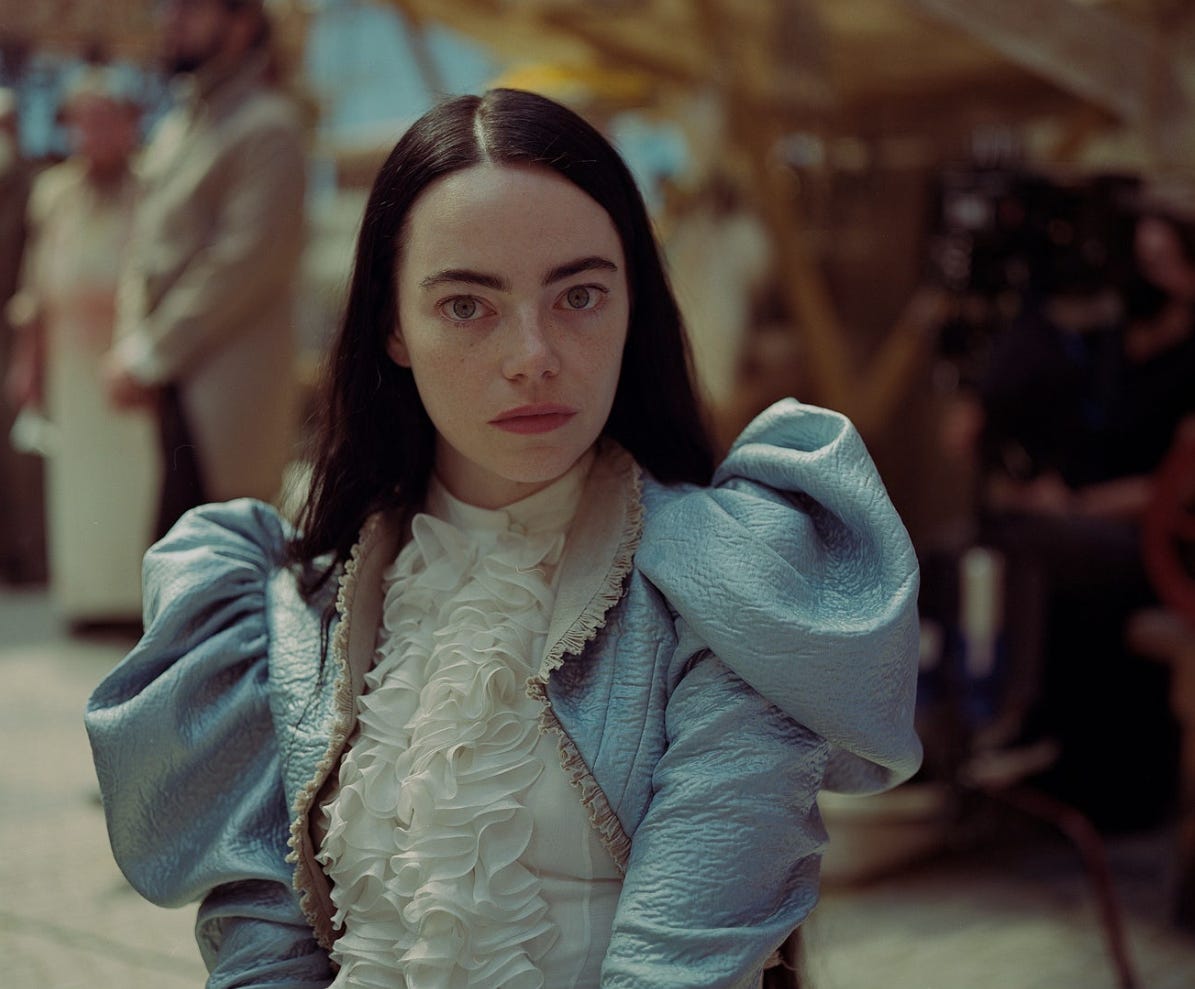Film: “Poor Things” starring Emma Stone
Every so often, a film comes along that upends your idea of what a “best movie of the year” should be. Last year brought such a film to the world’s attention and it is none other than the whimsical, comical, and highly erotic “Poor Things,” directed by Yorgos Lanthimos.
Set in Victorian-era London, “Things” is the entertaining story of Bella Baxter (Emma Stone), the subject of an unorthodox experiment conducted by brilliant-slash-mad-scientist Dr. Godwin Baxter (Willem Dafoe) and his assistant, Max McCandles (Ramy Youssef). In a previous life, Bella was an unhappily married woman who committed suicide by throwing herself off a bridge while nine months pregnant. Baxter rescues her, implants her unborn child’s brain into her head, and raises her as you would raise a child.
The resuscitated Bella behaves like an infant, spitting out food and smashing plates to the ground, but she begins maturing quickly. Godwin (called “God” for short) decides she should marry Max and consults an oily, unscrupulous playboy lawyer, Duncan Wedderburn (Mark Ruffalo) to draw up a contract. Sensing Bella’s dormant sexuality, Duncan gains her confidence, steals her from under the watchful eye of the doctor, and takes her to Lisbon. He follows that up with a Mediterranean cruise where they have sex in every possible position known to Bob Guccione.
A series of “Candide”-type adventures takes Emma and Duncan to Alexandria, to Paris, and finally back to London, a wiser woman with her feet on the ground—when her legs are not spread on a bed.
Whether or not you warm to this perverse tale, there is no arguing that Stone richly deserved her Best Actress Oscar. Few could portray the various stages of Bella’s development—from infant to sexual libertine—more skillfully than she. Stone goes for broke here, orgasming loudly, her body and face hitting disappointment, disgust, horror, intrigue—frequently as the same time.
As for the rest of the cast, Dafoe is excellent as the mad scientist who doubles as Bella’s father figure. He shows the nuances an experienced actor can bring to a role that could have been just a cliche. Same for the German actress Hannah Schygulla as Martha, the elderly woman she meets aboard the ship. Unfortunately, Ruffalo’s shtick as the drunken cad gets old quickly.
Visually, “Poor Things” starts off in black and white and ends in radiant color, reflective of how Bella’s world opens up and gains vibrancy. Cinematographer Robbie Ryna’s use of a fish-eye lens and extreme close-ups is intriguing though not altogether understandable. Coupled with the richness of the various settings—the interiors of the Baxter home, the views of the sky from the Mediterranean cruise ship, Paris covered in snow—the takeaway is mind-boggling.
“Poor Things”—smart, courageous and admittedly nonsensical at times—may not be everyone’s cup of English Breakfast tea. But if the idea of melding Freudian theory with the whimsy of Tim Burton strikes your curiosity, by all means indulge. Caution: after you watch “Things,” a lust for oysters and Portuguese pastry is totally understandable.
Like this review? Follow me at “What Does Aug Think?” at acsntn.substack.com. Thank you!


